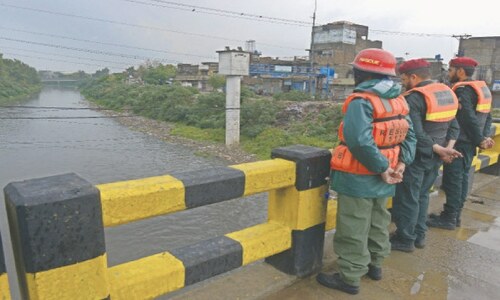ISLAMABAD: A civil society organisation in a report raised eyebrows over the massive increase in the number of rejected votes in 35 National Assembly seats in the 2013 general elections.
The Free and Fair Election Network (Fafen) released its report ‘National Assembly election result analysis’ covering 266 out of the 272 NA constituencies on Friday.
The report was based on data gathered through citizens and official documents of the Election Commission of Pakistan (ECP).
The report raised serious questions over the number of registered votes and the final result count.
However, it focused on the dramatic increase in the number of rejected votes in 35 seats where the winners had been declared successful with big margins despite the whopping number of rejected votes.
“If the number of rejected votes is less than the margin of victory, it’s ok. But it must be investigated as to how a candidate can win with a big margin when the number of rejected votes is too much,” Sarwar Bari, the head of Fafen, told a news conference.
Giving an example of NA-266 where the number of rejected votes stood at 25,908, he said even then the margin of victory was 5,861 votes against the runner-up. “These kinds of results are questionable,” Mr Bari added.
The report said the disproportionate increase in the number of rejected votes emerged as one of the major discrepancies with the number increasing from 775,720 in 2002 to 973,694 in 2008 and further increasing to 1,502,717 in 2013 - an increase of 64 per cent compared to the 2008 elections.
When asked if the ‘doubtful’ results of 35 NA seats had any relation with the much-debated ‘35 punctures’ story, Mr Bari said it had no relation with it.
The report said the issue of voter registration was of primary concern as the number of registered voters in 2013 elections decreased in 100 NA seats compared to 2008 elections despite a considerable increase in issuance of computerised national identity cards (CNICs).
“Of the 86.2 million voters, 43.6 per cent were women compared to 80 million voters in 2008 when women voters were 44 per cent. It is under-registration of women voters which undermine the universal suffrage. We are concerned about it,” he said.
The report said the finalisation of polling scheme by the ECP two weeks before the election day was a legal requirement and could not be changed by the returning officers without prior permission of the ECP and a subsequent notification to that effect.
“But Fafen found that the number of registered voters in 93 NA constituencies was recorded differently in the final polling scheme, elections results and an absolute discrepancy of 246, 858 voters,” said Mr Bari, asking the ECP to intervene and probe the issue.
The report said the distribution of constituencies showing voter discrepancy was skewed across the country with Punjab leading with 57 of the 93 NA seats showing a difference of voters between the final polling scheme and results.
Fafen suggested to the ECP to remove the discrepancies in the voter registration, finalisation of polling schemes and consolidation of results, adding the steps were crucial for credible and transparent elections.















































Dear visitor, the comments section is undergoing an overhaul and will return soon.